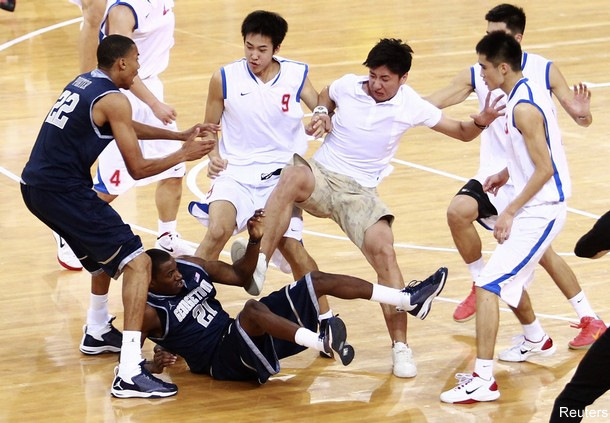Originally posted by Polish Silver
The term Kamikaze in fact arose from a typhoon sinking a Chinese invasion fleet.
It was only after the Meiji Restoration that Japan was in a position to repay its centuries of being bullied by China.
Originally posted by Polish Silver
It was this act which the scholars agree - on both sides of the Pacific - which prompted Japan's leadership to consider other actions. In fact it was this act which allowed the militant faction within Japanese politics to gain ascendancy.
There is no question Japan was belligerent, but that isn't the issue. In the same period, Germany was belligerent but didn't undergo any embargoes.
In fact there were far more provocations than the oil embargo.
The Flying Tigers, for example, was a cadre of US pilots and airplanes supplied to China to fight the Japanese 6 months before Pearl Harbor.
Germany and the Soviet Union both also supplied Chiang Kai Shek in order to 'contain' Japan.
Originally posted by Scot
And what if said supplier also sent its military aircraft and pilots specifically to fight your forces?


Leave a comment: